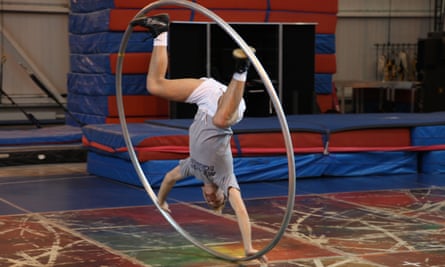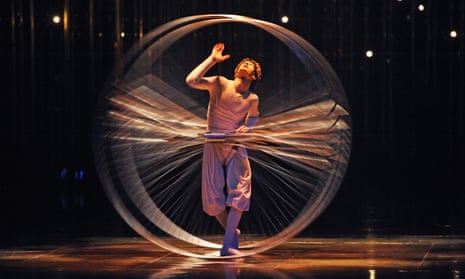Most parents, teachers, and schools encourage students to perform as best as they can, but it turns out that a focus on performance can hinder learning, improvement, and, ironically, performance.
Take Cirque du Soleil, a team that knows how to perform well. On stage, they exhibit beautiful acrobatic feats, often performed flawlessly. However, what we see is a brief slice of their day in which they focus on the skills they have already mastered and try to minimise mistakes – their performance zone.

They perform at such high levels only because behind curtains they spend a lot of time in their learning zone, where they engage in activities designed for improvement, fully concentrated on what they haven’t mastered yet, and expecting to make mistakes from which they can learn. Both the shows and the artists are perpetual works-in-progress, but they could not continue to evolve if they were constantly performing.
In any domain, it is the time spent in the learning zone that leads to significant improvement.
Focusing on performance can hinder learning
In recent workshops I surveyed educators on whether they think most students regard school as a learning zone or a performance zone. In these surveys, consistently over two-thirds of educators report that students perceive school as either “mostly a performance zone” or a “strong performance zone.”. Students give similar answers.
If students see school as a place to show what they already know and minimise mistakes, rather than as a place to focus on what they don’t know, how are they going to substantially learn and improve?
Inadvertently, students seem to learn that school is a performance zone from adults. Under pressure to cover content broadly rather than deeply, teachers are often eager to quickly get to the correct answers so that the class can move on to the next topic, rather than uncover and examine mistakes and confusions. Consequently, students quickly realise that they’re expected to speak up only when they know the right answer, which encourages them to focus on what they already know.
They also sense that peers, teachers, and parents will think highly of them only when they do something correctly, leading them to fear and avoid challenging themselves to learn new skills.
Moving from performance to learning
Fortunately, learning standards are transitioning from shallow, broad coverage to deep, higher level critical thinking. The resulting shift in instruction creates opportunities for teachers to facilitate discussions of complex issues with no single right answer, and to examine different perspectives, confusions, and misunderstandings, which fosters a learning zone.
When mistakes arise, let’s examine them to reflect on what we can learn from them. When the material is too easy, let’s move on to a higher level of challenge. These practices send the message that in school we want to spend most of our time developing competencies we haven’t mastered yet.
Students also perceive school as a performance zone when all their homework and in-class work gets evaluated for correctness with a grade, rather than being used to provide substantive skill-related feedback they can learn from.
Instead, teachers can facilitate frequent substantive feedback, including feedback from peers. If students examine confusions throughout the day, they are constantly receiving information they can learn from. When the teacher wants to provide feedback directly, doing so in class works well by sharing information on how everyone could improve. Another way to do this in a personalised way, while also saving time, is to consider recording your feedback by voice. This allows teachers to give a lot more feedback faster, and it leads students to listen to it rather than look at the letter grade and disregard substantive comments.
Finally, if we want children to become lifelong learners, we must model being learners ourselves. We can do this by sharing with them what we’re working to improve, ask for their feedback, share our questions, as well as our mistakes and what we have learned from them, whether personally or professionally.
There is a place for the performance zone
The performance zone has a place too. It is what allows us to get things done to the best of our ability. When the stakes are high, such as when we’re building a bridge or operating a surgery, we want to be in our performance zone so that we can accomplish those tasks as correctly as possible.
In school, during summative assessments we do want students to focus on what they know and during exhibitions or other high-stakes applications of learning, we want them to do their best, and minimise mistakes.
Any other time, we want them to be focusing on what they haven’t mastered yet. Being clear about this helps students learn how to learn and how to apply their learning when the time comes. But being in the performance zone all the time hinders not only our growth, but ironically, over the long term, also our performance. Eduardo Briceño is the co-founder and chief executive of Mindset Works. Follow him on Twitter at @ebriceno8. This article was first published in the Mindset Works newsletter, to which you can subscribe here.
Follow us on Twitter via @GuardianTeach. Join the Guardian Teacher Network for lesson resources, comment and job opportunities, direct to your inbox.
Looking for a teaching job? Or perhaps you need to recruit school staff? Take a look at Guardian Jobs, the education specialist.
